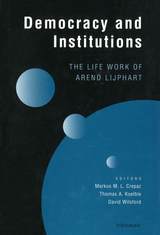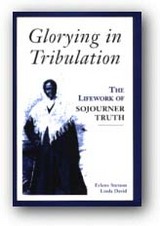
The essays in this volume offer both theoretical insights into the context and implications of Lijphart's ideas and empirical exploration of the ideas. Two chapters by Thomas Koelble and Andrew Reynolds examine and apply Lijphart's insights to South Africa, while another study by Jack Nagel explores the fascinating institutional changes taking place in New Zealand. Essays by Bernard Grofman and Rein Taagepera examine Lijphart's work from a theoretical perspective and place Lijphart's work in the wider neo-institutionalist school of thought. Milton Esman applies the principle of power-sharing to mobilized communities, not only in democratic societies but also to those which are governed by authoritarian rule. Bingham Powell offers an empirical approach to the crucial question of the connection between political institutions and responsiveness of policy-makers. Markus M. L. Crepaz and Vicki Birchfield argue that in this age of globalization, countries with consensual political institutions will not only systematically refract the pressures of globalization but will be able to absorb the domestic consequences of globalization more successfully than majoritarian countries. Finally, Arend Lijphart responds to the arguments made in these essays, extending and adding novel concepts and insights to his conceptual framework.
The book will be of interest to political scientists, lawyers, and sociologists who study institutions, the impact of electoral systems, and constitutional design. In addition, those who study "globalization" will be attracted by the relevance of domestic political institutions and their refractory effects as the tides of globalization wash against the domestic shores.
Markus M. L. Crepaz is Associate Professor of Political Science, University of Georgia. Thomas A. Koelble is Associate Professor of Political Science, University of Miami. David Wilsford is President and Professor, the Institute for American Universities.

In Glorying in Tribulation, Stetson presents a new dimension of Sojourner Truth's character. Much of the information regarding this oft-quoted African American woman is either the stuff of legend or is in dispute. This important new biography takes both legend and fact and sets them into a larger historical context. The authors utilize archival sources, and other forms of direct and indirect evidence to create a better understanding of Truth. We see her victories as well as her defeats--we see her as a real person. Truth comes alive in the pages of this book through her poignant, prophetic words and we realize that what she spoke of in the nineteenth century is just as relevant to us today.
Glorying in Tribulation offers students, scholars, and teachers of American history and culture studies a comprehensive look and a new perspective on Truth's contribution to American history. It is a long-overdue, exciting interpretation of the meaning of Sojourner Truth's life.

READERS
Browse our collection.
PUBLISHERS
See BiblioVault's publisher services.
STUDENT SERVICES
Files for college accessibility offices.
UChicago Accessibility Resources
home | accessibility | search | about | contact us
BiblioVault ® 2001 - 2024
The University of Chicago Press









